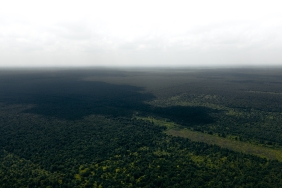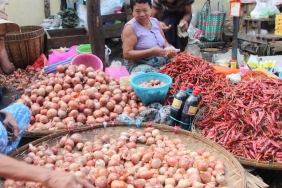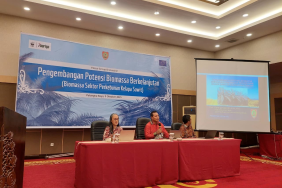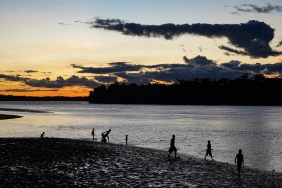WWF ENCOURAGES RENEWABLE ENERGY DEVELOPMENT IN WEST KUTAI.
By Sri Jimmy Kusmini
Sendawar (07/24)-A number of villages in West Kutai still have difficulty getting access to electricity. This alarming condition is caused by the increasing energy needs of the community which is not followed by the increase in electricity production. To overcome this, alternative solutions by developing renewable energy need to be done. In order to explore the potential and plan for the development of low-emission electrical energy in West Kutai, WWF-Indonesia in collaboration with the West Kutai Regency Government held a Focus Group Discussion in West Kutai, Tuesday (24/07). This electricity discussion was attended by 26 participants consisting of government elements (Bappeda, Distamben, Dishut, BPMPK), PLN Melak Branch, WWF, and the community.
The Regent of West Kutai, represented by the Head of West Kutai Bappeda, Finsen Allotodang, officially opened the forum which was held in the second floor meeting room of Bappeda of West Kutai Regency. In a presentation about the electricity condition in West Kutai, Finsen said, "Especially the electrification of the household level in West Kutai which is without electricity is 57%; getting electricity from PLN is 22% and non PLN electricity is 21%."
He also pointed out that the local government has not been able to meet the needs of electrical energy, especially for people living in rural areas. The procurement of energy supply has also experienced many obstacles. People in many villages in West Kutai still use generators that use fossil fuels (diesel and gasoline), which have high operating costs and are not environmentally friendly. .
"We welcome the initiative of WWF Indonesia to cooperate in the preparation of the Regional Electricity General Plan (RUKD) which will be the basis for the development of electrical energy, especially renewable energy that utilizes the potential of natural resources such as water and solar power to reach villages in the interior that are not reached by electricity from PLN," he added.
Meanwhile, the Director of Climate and Energy of WWF- Indonesia, Nyoman Iswarayoga revealed the importance of cross-sector and inter-institutional cooperation for the development of renewable energy in order to answer the challenges of meeting electricity needs in West Kutai. This can be done through the making of the Regional Electricity General Plan (RUKD) of West Kutai which will contain, among others, the methods and strategies of Electricity Energy Development in West Kutai, Transmission and distribution system development planning and regional electricity policy direction.
"West Kutai has abundant potential to be developed as a sustainable energy source to meet the electricity needs of the community, especially in rural areas," he said.
Then the PLN Rayon Melak, Juned, underlined the high operational costs of procuring electrical energy from fossil fuels. According to him, for operations, the Melak rayon PLTD uses 1.2 million liters of diesel fuel which consumes Rp 12 billion per month; with a return payment from the community of only Rp 3 billion so that the government must provide electricity subsidies of Rp 9 billion. Melak rayon PLTD uses 1.2 million liters of diesel fuel which consumes Rp 12 billion per month.
"PLN is trying to cooperate with other parties to help meet the electricity needs and the development of electrical energy in West Kutai," he concluded.





